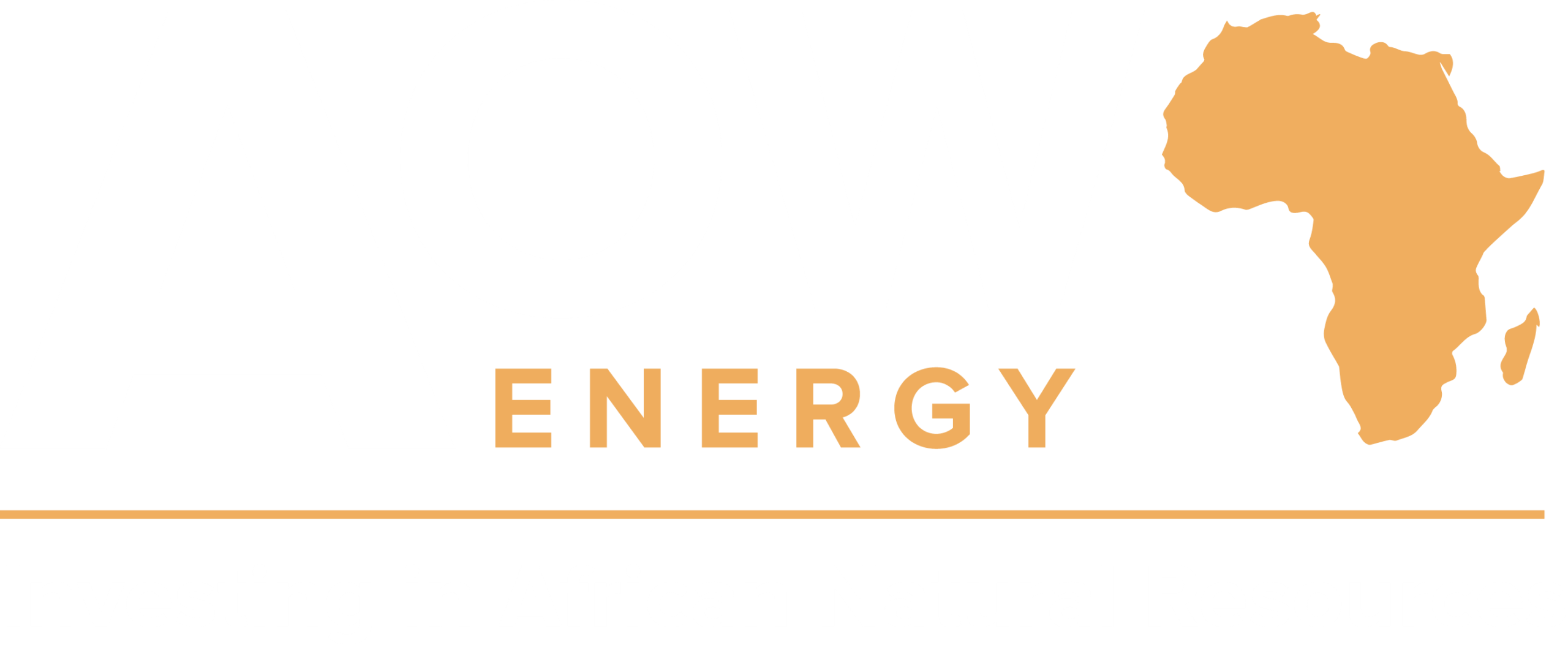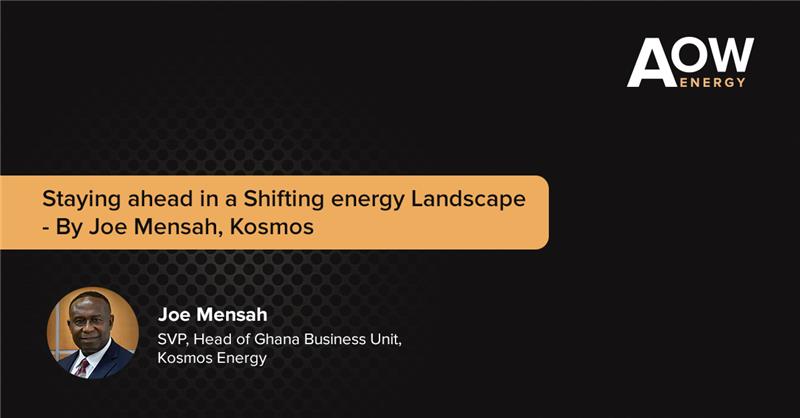Staying Ahead In A Shifting Energy Landscape
Share:
By Joe Mensah, Senior Vice President and Head of the Ghana Business Unit, Kosmos Energy
Global energy markets are evolving rapidly, but one fact holds steady: robust demand for oil. Demand is projected to climb to around 110 million barrels per day by 2035, according to Wood Mackenzie, implying a supply gap of around 30 million barrels of oil equivalent per day at current levels of industry investment. For energy companies with the right strategy, this shortfall represents a major commercial opportunity.
At Kosmos Energy, we’re focused on unlocking value and delivering future barrels through:
- Increasing recovery from existing fields
- Bringing discovered but undeveloped resources into production
- Pursuing short-cycle exploration in proven basins
But our ambition goes beyond financial returns. As a long-term partner in Africa, we see energy as a catalyst for economic development. By bringing more oil and gas to market — including domestic gas to power local industries and homes — we’re working alongside host nations to grow their revenues, improve energy access and support national development goals.
Maximizing Value from Mid-Life Fields
Delivering more from existing fields is the most efficient way to add new production. At Kosmos, we work with our operating partners and take a comprehensive view — from optimizing lift systems and adjusting water injection, to drilling infill and step-out wells that target untapped zones.
Cutting-edge technologies transform our approach. We’re using next-generation seismic imaging techniques like Ocean Bottom Node (OBN) acquisition and Full Waveform Inversion (FWI) to build clearer, more detailed subsurface models. These tools help us see what traditional seismic might miss — subtle faults, thin reservoir beds, fluid boundaries, and new trap types.
What’s exciting is that Kosmos is deploying these advanced tools with the same ambition and impact as the supermajors. In fact, we are actively transferring technical knowledge and capabilities from the Gulf of America — one of the world’s most mature offshore regions — to help unlock the full potential of mid-life fields like Jubilee in West Africa.In Ghana, where we recently signed a Memorandum of Understanding with the Government to extend our production licenses to 2040, we’re feeding 15 years of production data into proprietary artificial intelligence (AI) tools integrated with our physics-based reservoir models. These tools suggest ways to fine-tune water injection strategies and improve recovery, ensuring that more resources are monetized efficiently — not just for shareholders, but for the benefit of the host country.
And our work doesn’t stop at recovery factors. We’re enhancing the overall field performance, extending asset life, and helping governments maximize the long-term value of their national resources.
Accelerating Development of Discovered Resources
Bringing discovered but undeveloped resources into production can be challenging, requiring capital, infrastructure, and agility. Kosmos approaches this with a disciplined, phased development model that balances early returns with long-term growth.
Our strategy allows us to start small, learn from initial production, and scale up as needed — reducing upfront capital exposure and mitigating risk. It also enables early cash flow that can help fund later phases.
We’ve applied this approach successfully at Ghana’s Jubilee field, as well as the Greater Tortue Ahmeyim (GTA) LNG project offshore Mauritania and Senegal. GTA Phase 1 is more than an LNG export project; it’s a regional energy game-changer. It will generate government revenues, strengthen local energy systems, and provide a foundation for future phases that may include domestic gas supply for power and industrial use.
In the Gulf of America, our focus is on subsea tiebacks to existing infrastructure — a fast, cost- effective, and lower-emissions path to production. The Winterfell discovery, which was brought online just three years after it was found, is a good example of this approach and we expect the promising Tiberius discovery to follow a similar trajectory. By aligning technical excellence with capital efficiency, Kosmos is proving it can bring discovered resources online faster and more efficiently.
This Gulf of America playbook — efficient development, technical rigor, capital discipline — is informing how we develop assets in Africa. It’s not a copy-paste approach, but a tailored application of proven strategies in collaboration with national oil companies and regulators.
Short-Cycle Exploration, Strategically Focused
Across the industry today, exploration is no longer just about chasing new frontiers — it’s about delivering new volumes quickly, responsibly, and with clear commercial rationale.
Kosmos focuses on short-cycle exploration in proven basins with existing infrastructure, attractive fiscal terms, long-duration licenses, and manageable above-ground risk. We prioritize areas where we already operate and have deep local knowledge.
Recent acquisitions in the Gulf of America have expanded our inventory of high-quality prospects near existing infrastructure, enabling us to shorten the cycle from seismic to first oil — keeping costs down and returns high. Meanwhile, in Africa, we’re leveraging these same exploration principles –- discipline, speed, and local understanding — to unlock new resources with strategic relevance for our host countries.
From Ghana to Equatorial Guinea to Mauritania and Senegal, we see an enormous opportunity to explore more efficiently — with shorter paths to production and greater impact. The goal isn’t just more barrels; it’s more local content, more government revenue, and more reliable domestic supply.
Built for the Challenges Ahead
The oil and gas sector is navigating a period of intense complexity. Even though demand remains strong, companies operate in a world shaped by stakeholder expectations, geopolitical risk, evolving regulatory frameworks, and the realities of the energy transition.
At Kosmos, we’re meeting this challenge with a strategy grounded in capital discipline, deep basin expertise, and a commitment to technological innovation. We know where to look, how to unlock more from what we have, and when to act quickly to seize opportunity.
Equally important, we recognize that energy development — especially in Africa — is about more than production. It’s about powering economic growth. We work alongside governments to develop projects that not only export resources, but also build the foundation for local industry, infrastructure, and long-term economic resilience.

